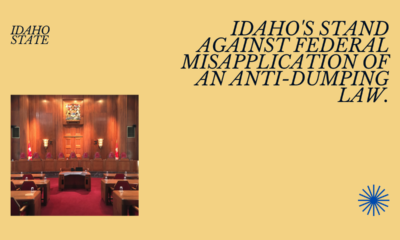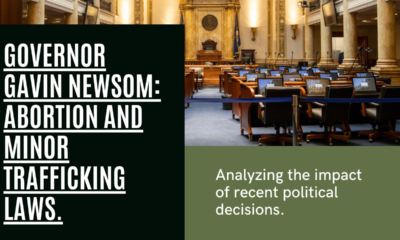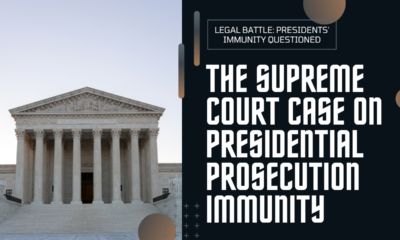Civilization
Geopolitics, Not Ideology, Should Guide Our Policies Toward China, Russia, and Iran
Pursuit of ideology leads to endless wars. Geopolitics is a far better guide to foreign policy against large foreign actors.

The neoconservative crusade against “autocracy” is on display in the pages of National Review, where Corban Teague of the McCain Institute’s Human Rights & Freedom Program and Daniel Twining of the International Republican Institute call upon America to “robustly counter” the “axis of autocracy” composed of China, Russia, and Iran. After the failures of the Afghan and Iraq wars, which the neoconservatives transformed into a Global War on Terror (GWOT), the search for a new ideological opponent has been found: Autocracy. Once again, the neoconservatives are attempting to transform a geopolitical conflict into an ideological crusade. The “axis of evil” has been replaced by the “axis of autocracy.”
The Biden administration has bought into this crusade, framing of our policies toward China, Russia, and Iran as a struggle between democracy and autocracy. But there are plenty more autocracies out there (including some of our allies) so the list of enemies can be expanded (North Korea, formerly of the “axis of evil,” comes to mind). Of course, autocratic regimes have existed on the earth since the beginning of recorded history. A crusade against autocracy will take a long time–even longer than the failed GWOT. In his first State of the Union address, President Biden stated: “In the battle between democracy and autocracy, democracies are rising to the moment, and the world is clearly choosing the side of peace and security.” This “battle,” the president said, is “going to take time.” Biden’s language was reminiscent of George W. Bush’s speeches after the September 11, 2001, terrorist attacks. And, as we have seen, crusading rhetoric can lead to crusading wars, with disastrous results.
Teague and Twining contend that what is at stake in the war against autocracy is whether the world “balance of power tilts toward freedom and individual liberty, or a world dominated by brutal autocrats oppressing their own people and terrorizing their neighbors.” “China, Russia, and Iran,” they write, “pose a connected threat and must be addressed collectively.” The goal of the axis of autocracy, they claim, is to “make the world safe for autocracy,” which is why we need to supply aid and weapons to Taiwan, Ukraine, and Israel. Teague and Twining note that the three regimes of their “axis” collaborate with one another, but the notion that they are pursuing a collective ideological goal instead of their respective geopolitical interests is speculative, at best. Nations, even autocracies, pursue their own interests. Iran, for example, was an autocracy under the Shah but an ally of the democratic United States. China in the 1970s and 1980s was a totalitarian regime but allied with the United States when it was in its geopolitical interest to do so. The United States during the Cold War (which had an ideological component) reached out to communist Yugoslavia and Romania and China for sound geopolitical reasons. The Nixon-Kissinger “triangular diplomacy” worked in the early 1970s because those two statesmen emphasized geopolitics over ideology. So, by the way, for all of his ideological rhetoric, did Ronald Reagan.
Not satisfied with taking on China, Russia, and Iran, Teague and Twining propose that America and its fellow democracies adopt a “political and economic Article 5–modeled after Article 5 of the North Atlantic Treaty–that would spur collective responses to the economic and political coercion of democracies by authoritarian powers.” An attack upon on any democracy will be an attack upon all democracies. They also want the United States to support “democratic activists and human-rights defenders within autocratic regimes.” So their crusade against autocracy will include policies of “regime change” to reshape the world in America’s image.
Teague and Twining would have America endlessly “go abroad in search of monsters to destroy,” in defiance of the wise counsel of John Quincy Adams. They have learned nothing from the failures in Afghanistan and Iraq.
This article was originally published by RealClearDefense and made available via RealClearWire.
Francis P. Sempa writes on foreign policy and geopolitics. His Best Defense columns appear at the beginning of each month.
-

 Education3 days ago
Education3 days ago‘Grading for Equity’: Promoting Students by Banning Grades of Zero and Leaving No Class Cut-Ups Behind
-

 Family3 days ago
Family3 days agoIdaho defends against abortion mandate
-

 Civilization4 days ago
Civilization4 days agoNewsom plays silly abortion politics
-

 Constitution2 days ago
Constitution2 days agoPresidential immunity question goes to SCOTUS
-

 Civilization5 days ago
Civilization5 days agoEarth Day – part of cultural Marxism
-

 Civilization4 days ago
Civilization4 days agoWaste of the Day: China Still Owes Over $1 Trillion to American Bondholders
-

 Civilization4 days ago
Civilization4 days agoCurrent Conflicts Demonstrate Need for More and Better Tanks In Eastern Europe
-

 Education3 days ago
Education3 days ago‘Grow PA’ Plan Helps Solve Economic, Higher Education Challenges









